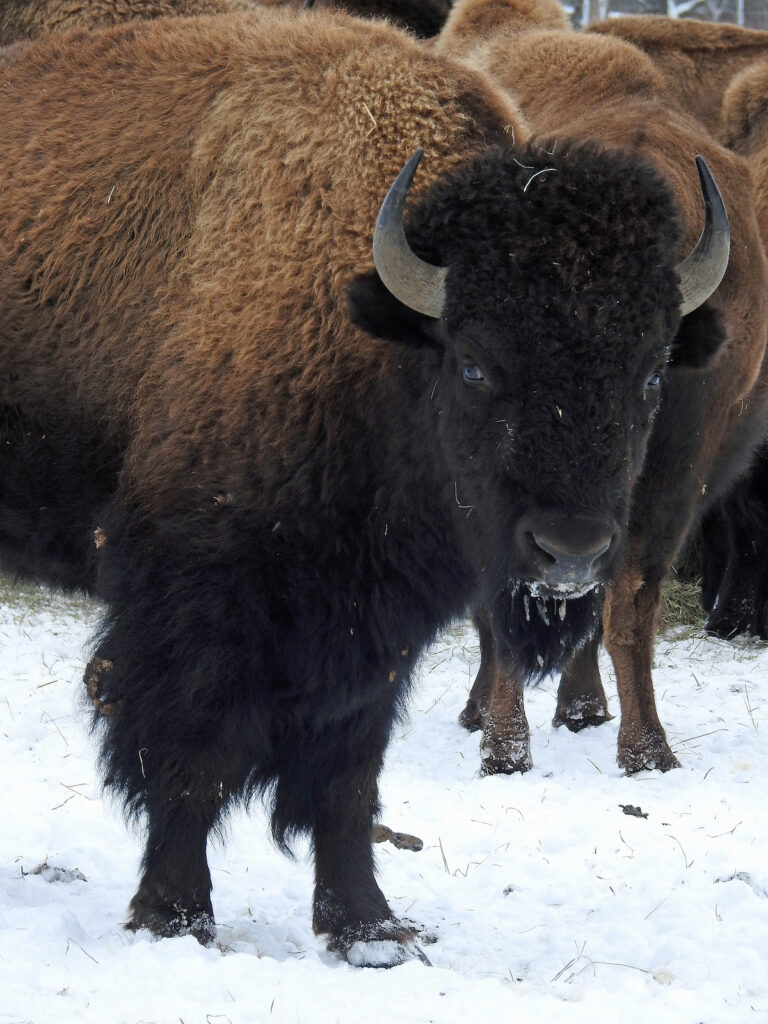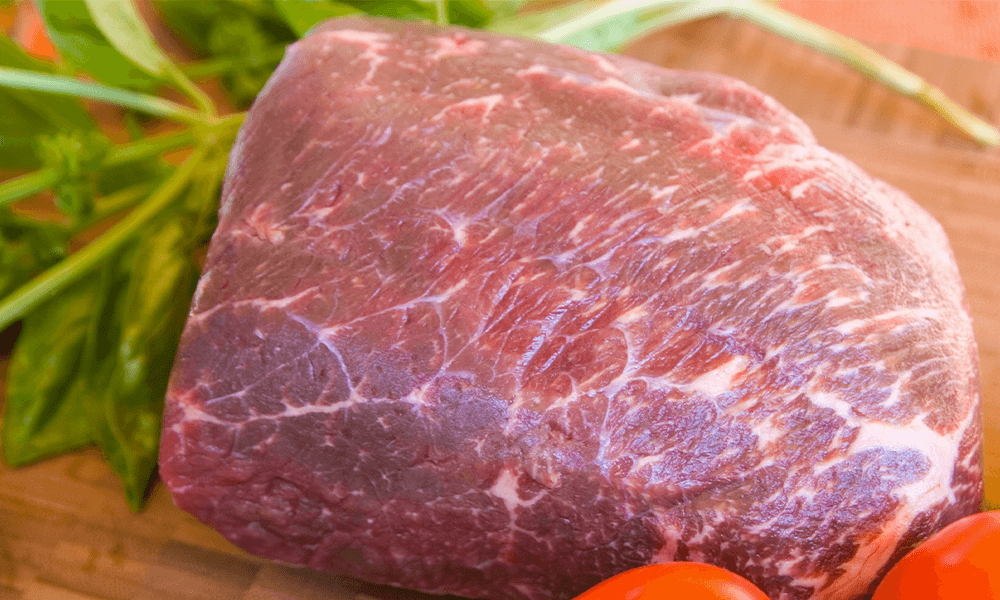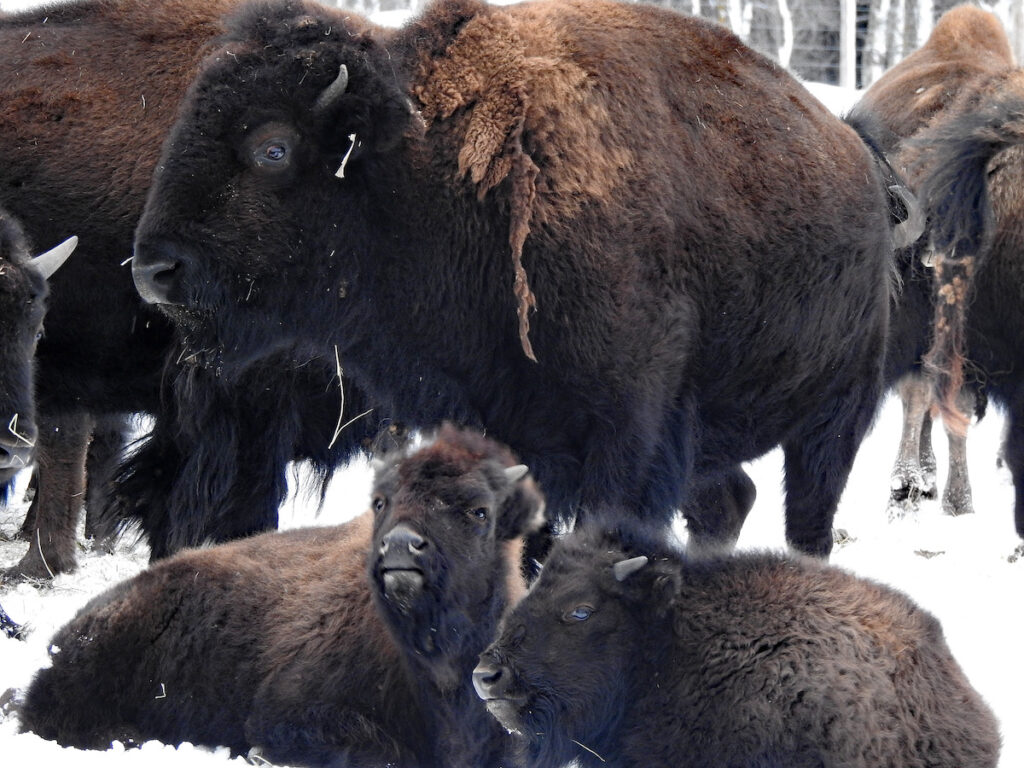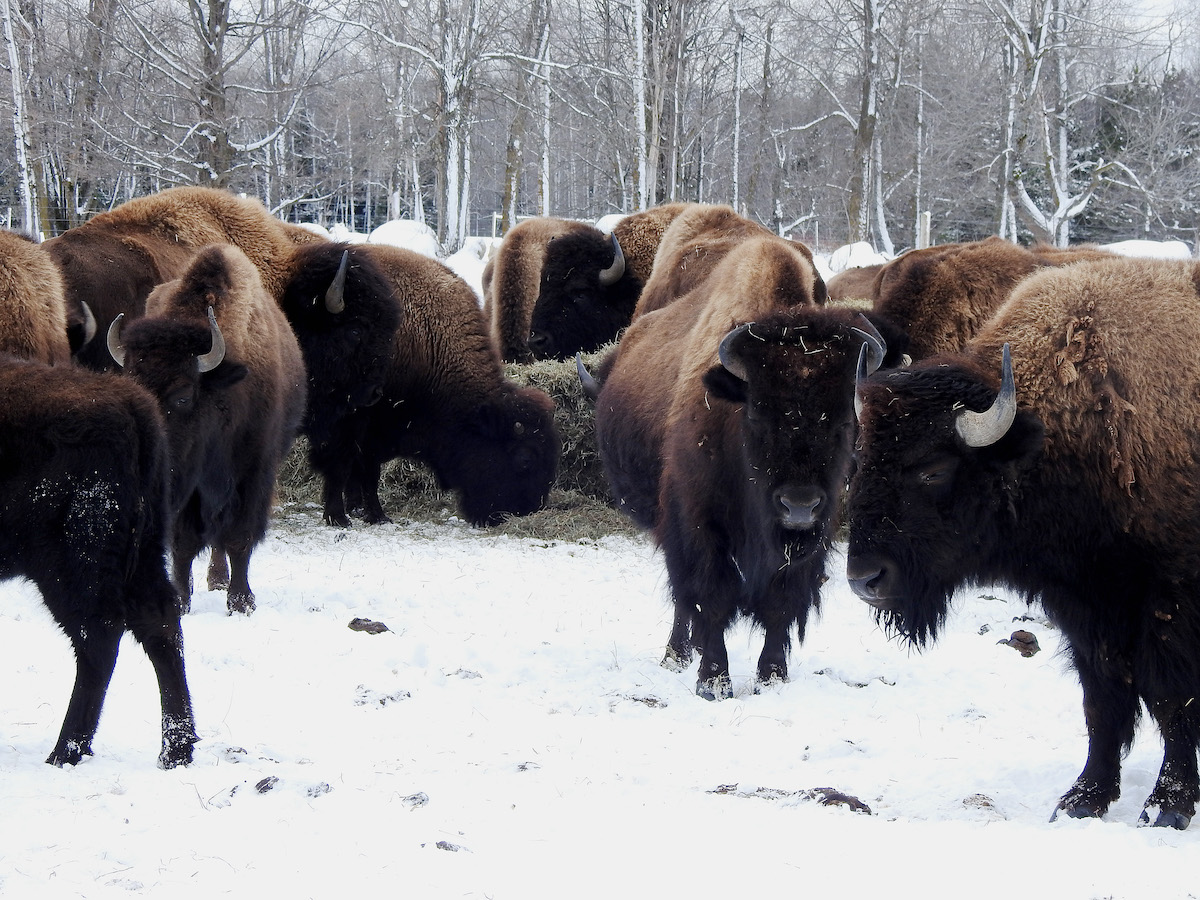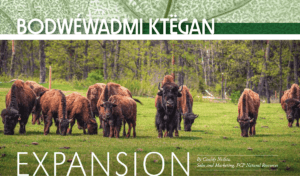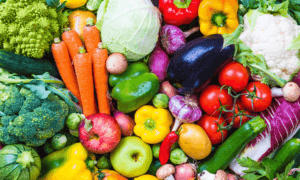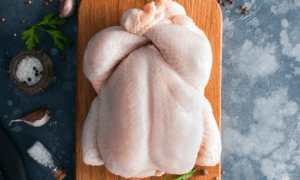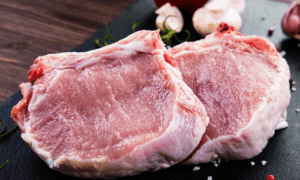Buffalo raised on green pastures and rotationally grazed like those on our farm have a very lean meat that is full of flavor. Bison is a great heart healthy alternative to beef. 3.5 ounces (about the size of your palm) of cooked ground bison has just 2.5 grams of fat and 28.5 grams of protein. The same amount of beef has 18.5 grams of fat and 27 grams of protein. Like all our animals, we don’t give our bison any growth hormones or antibiotics. Stop in to our store to pick some up today!
Bison Products We currently Offer Include…
- Ground
- Patties
- Roast
- Ribeye
- New York Strip
- Tenderloin
- Sirloin
- Brisket
- Ribs
- Ox Tail
- Soup Bones
- Liver
- Heart
- Tongue
Cooking Tips
Because buffalo has less fat, it cooks more quickly than beef. Turn down your heat to ensure you don’t overcook the meat. Here are some other tips for getting perfectly juicy buffalo.
For tender cuts like tenderloin, ribeye, and New York Strip:
If cooking in the oven, lower the heat to 250-275°F.
If grilling or cooking on the stovetop, cook about 6 minutes per side for every inch of thickness.
For burgers:
If fresh, cook 2-3 minutes per side.
If frozen, cook 4 minutes on the first side, then 2 minutes on the other side.
For ground:
lower the heat to medium and cook until the internal temperature reaches 160°F.
For less tender cuts like roast and oxtail, use a slow cooker or pressure cooker.
Our Herd
We have around 65 bison in our herd, including about a dozen pure Plains bison. The Plains bison almost went extinct, with its population hitting a low of only 325 animals in the late 1800s. In an effort to save the species, some ranchers bred these bison with cattle.
Bison are quite agile animals, although they don’t look it. They can jump as well as a deer and run as fast as a race horse. For an animals that stands 6 feet tall and weighs one ton, that is a sight to see! Bison don’t show off their skills very often, though, and are relaxed and shy most of the time. They also can shrug off temperatures as low as –40°F. Today, there are only a couple of herds in the US that don’t have any cattle genes. Bodwéwadmi Ktëgan is working toward having a pure herd, but that will take time.
